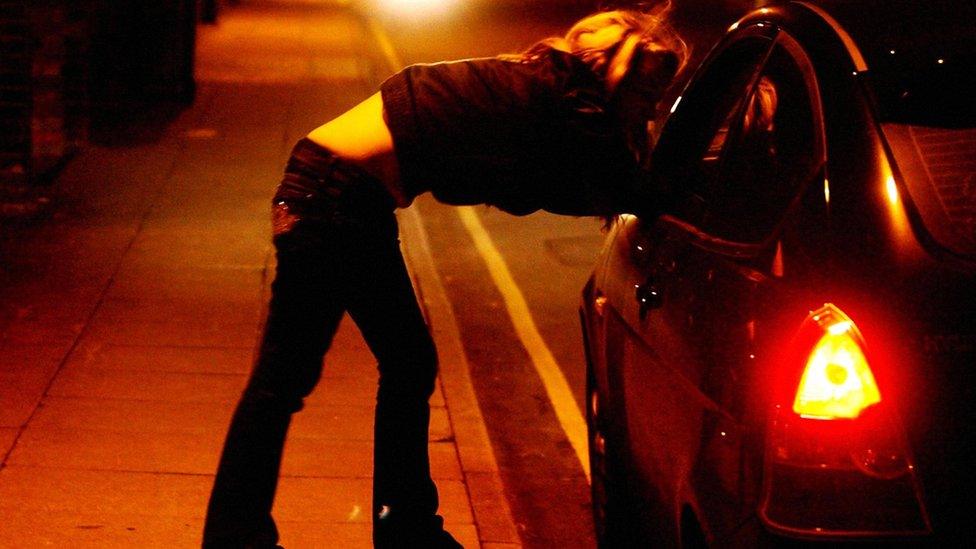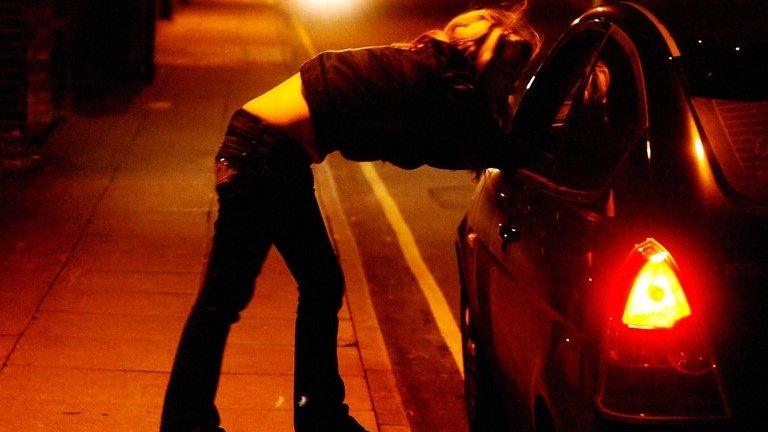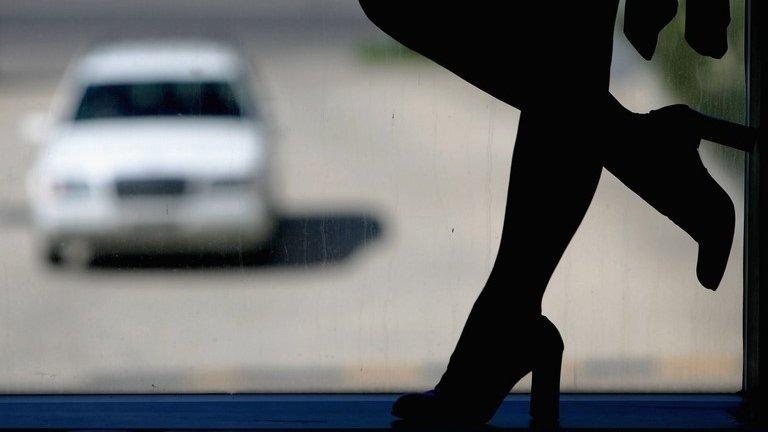Prostitution research to assess law change call
- Published

Research into the "scale and changing nature of prostitution" is to take place before calls to amend laws are considered, the government has said.
In July the Home Affairs Committee said soliciting for sex in England and Wales should no longer be a criminal offence.
MPs also suggested sex workers should be able to share premises rather than risk working alone.
Home Secretary Amber Rudd said a "robust evidence base" was needed before policy changes were addressed.
The Home Office's research project - another recommendation from the committee - will report back next June.
'Vulnerable people'
The MPs' interim report, external had also called for previous convictions and cautions for prostitution to be deleted from sex workers' records, saying it created an insurmountable barrier for those wishing to move into "regular" work.
It added that laws should be changed immediately but stressed that powers to prosecute people who use brothels to control or exploit sex workers should be kept.
In the Home Office's response to the report, external, Ms Rudd said safeguarding vulnerable people and reducing the harm that can be associated with prostitution is a priority.
She said people who want to leave should be given every opportunity to find routes out.
But she added any government response should include "ensuring those involved in prostitution and sex work are safeguarded, that traffickers and those who exploit vulnerable people can be effectively targeted, and ensuring that community concerns about prostitution and sex work can be addressed".
On soliciting and deleting previous convictions, Ms Rudd said the scale of prostitution "would have to be established before the merits and demerits of any policy changes and their potential implications were to be considered".
In England, Wales and Scotland, selling and paying for sex is not against the law but many activities linked to it, such as brothel-keeping, kerb-crawling and soliciting sex in a public place, are outlawed.
In 2014, Northern Ireland became the first part of the UK to pass legislation making the purchase of sexual services illegal.
- Published1 July 2016

- Published4 March 2016

- Published6 May 2015

- Published11 August 2015
